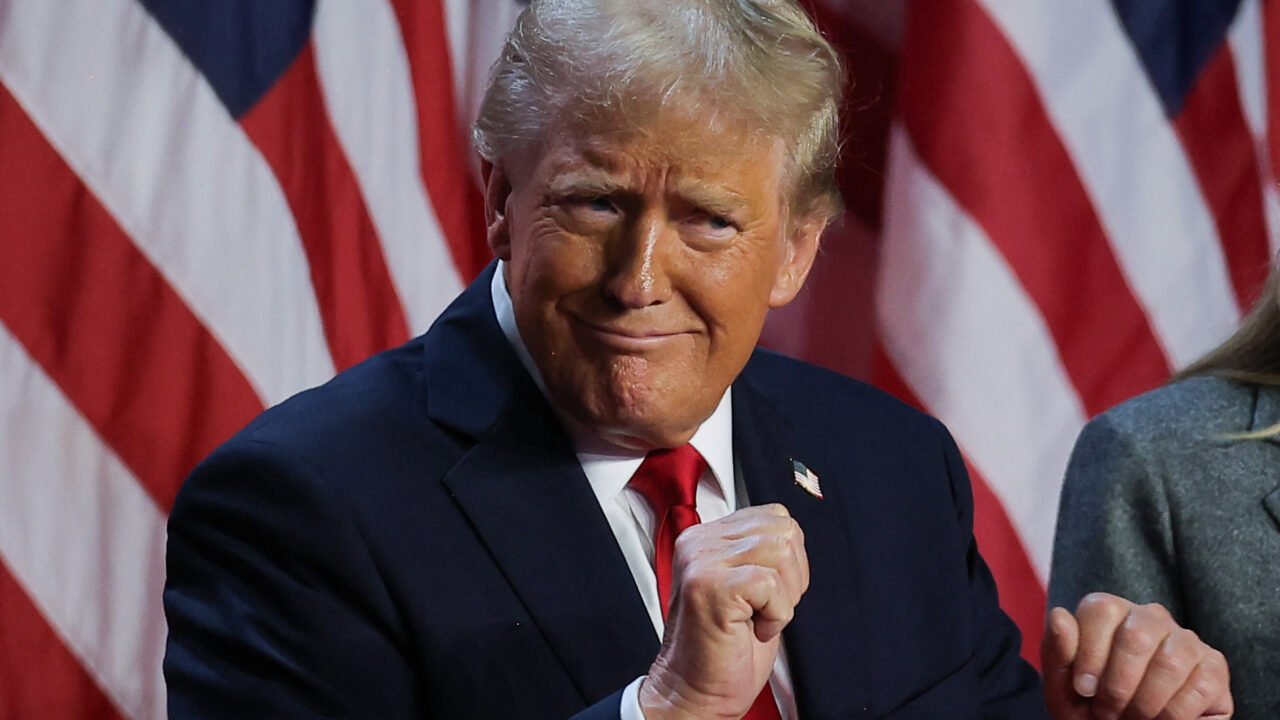President Donald Trump has imposed tariffs on over 40% of U.S. imports, the most extreme trade action in almost a century, in a move that has rocked international markets. Investors are nervous and regular Americans are preparing for the effects of the momentous declaration made over the weekend, which has sparked worries of a full-fledged global trade war.
A Bold and Controversial Move
President Trump declared plans over the weekend to slap high tariffs on a number of commodities imported from countries, including China, Mexico, and Canada. Goods from Canada and Mexico will be subject to a 25% tariff beginning February 4—a dramatic increase under the trade framework that was renegotiated in 2019. Furthermore, North American energy items and crude oil are subject to a 10% charge, while Chinese exports are subject to a comparable levy. Similar actions under the International Emergency Economic Powers Act are anticipated to be taken against the European Union in the upcoming weeks.
“People are aware that we can have some little discomfort in the near term. But in the long run, almost every nation in the world has stolen from the United States,” Trump said. His unrepentant tone demonstrated how frustrated his administration was with perceived exploitation of American industry and long-standing trade imbalances.
Market Reactions
The financial markets’ initial response was nothing short of spectacular. Early Monday trading saw a decline in U.S. equities futures as investors processed the news. The Dow Jones Industrial Average may retreat by 550 points, and the S&P 500 is predicted to open 85 points down. Major companies like Nvidia (NVDA), Tesla (TSLA), Apple (AAPL), and Alphabet (GOOGL) will be pulled down by the tech-focused Nasdaq, which is also headed for a sharp loss.
The energy markets also reacted quickly. Fears that tariffs on energy products could upset North America’s integrated energy markets caused West Texas Intermediate (WTI) oil futures to jump $1.86 to close at $74.40 per barrel. As investors rushed for safe-haven assets in the face of growing uncertainty, the U.S. dollar surged to a two-year high, with the dollar index rising to 109.506.
The CBOE Group’s VIX index, the market’s benchmark volatility indicator, surged by more than 25% to $19.87, indicating general anxiety over the possibility of daily market movements of up to 1.24% in the S&P 500 over the next month.
The Looming Threat of a Trade War
These tariffs have repercussions that go well beyond Wall Street. More than 40% of U.S. imports are currently subject to tariffs, raising the possibility of retaliatory actions. China is allegedly preparing a legal challenge through the World Trade Organization and has already indicated that it will take “necessary actions” against American exports. Mexico and Canada have both laid out their own plans in response, laying the groundwork for what many worry might turn into a full-scale trade war.
Inga Fechner, senior economist for global trade at ING, cautioned that “if Mexico, Canada, and China carry out the announced response, the global economy might experience an unprecedented escalation of trade hostilities.” Her comments perfectly convey the evident stress and ambiguity that currently surrounds economic relations on a global scale. It is a high-stakes game in which every decision could have a significant impact on the world economy.
The Economic Cost
The real impact will be felt by regular Americans, even though the news is dominated by headline-grabbing statistics and market fluctuations. Families across the country may soon find their budgets even more constrained as tariffs increase the price of imported items, ranging from energy and auto parts to common consumer goods.
The volatility serves as a sharp warning to investors of how precariously intertwined today’s global markets are. The increased costs of necessities could make the difference between customers just scraping by and having to keep up with the rising expense of life.
What Lies Ahead
One thing is certain as the globe observes the trade drama developing: there will be a lot of uncertainty in the months to come. It is recommended that investors use caution, diversify their holdings, and keep up with the most recent advancements. Ahead of the wider economic consequences, consumers should reevaluate their budgets and brace themselves for the possibility of price increases.
It is more important than ever to keep educated during these volatile times. Navigating the uncertain economic landscape ahead requires knowing the full magnitude of these policy moves—and their potential to start a global trade war—whether you are an experienced trader or a worried consumer.




